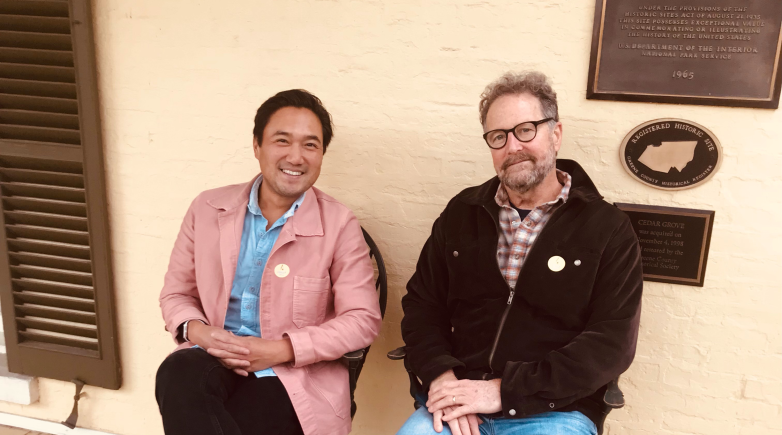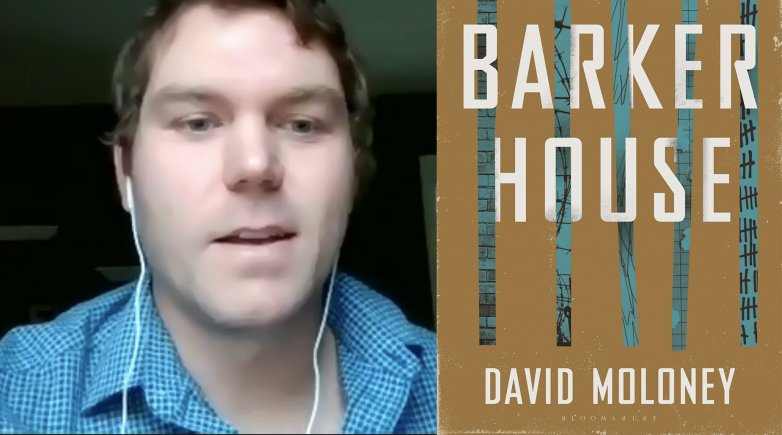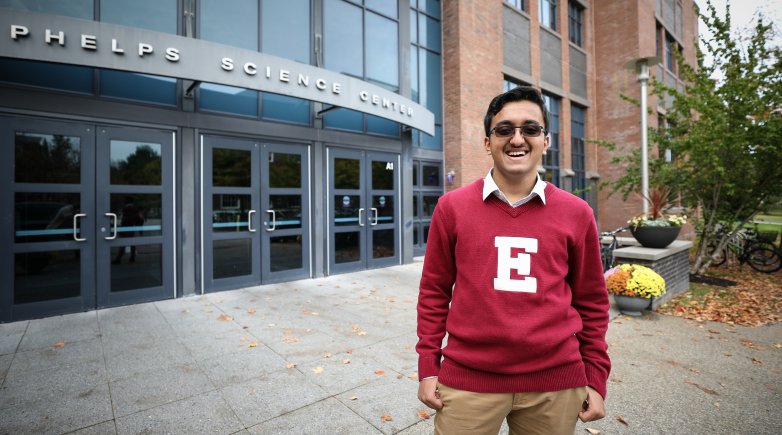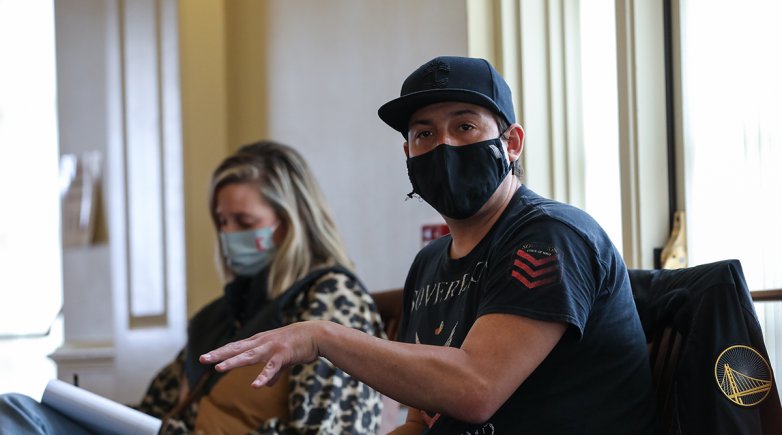Garden of the forking paths
Decades after meeting at the Harkness table, award-winning novelist Paul Yoon ’98 and English Instructor Emeritus Ralph Sneeden connect for a wide-ranging conversation on mentorship, friendship, teaching and writing.
In the fall of ’97 Paul Yoon was a student in my senior English 410 class, and I can’t remember if, in his writing back then, he ever really tackled the core requirement of the English curriculum: the personal narrative. What I do remember, however, other than his hunger to read, was his short fiction. One story, in particular. For his final assignment, he handed in “La Guitarrista” instead of a personal essay or autobiographical narrative. The story ended up in the student journal Pendulum that year. True, Paul played guitar and sang, but the piece’s imaginative trajectory, pathos and sudden violence were rendered so confidently that any experience the author might have had with music was only a point of departure. The story deflected the teacher’s/reader’s attempts to sift the author’s presence from the plot. It was a real story, not a personal narrative dressed up like a story.
Over the subsequent years, we’ve kept in close contact, become friends, even colleagues, one might say, especially since I’ve been able to spend more time writing and he is descending deeper into his role as a teacher. Last March I had the opportunity to interview him in front of a live audience at The American School in London, where he was the Bergeron Fellow/writer-in-residence. I’d been awarded the same honor in 2008, so it was a beguiling crossroads in both our careers, a juncture where we could both take stock of the separate roads we’d chosen, but where our writing and teaching seem to keep intertwining, as if in some Borgesian “garden of the forking paths.”
Paul’s last appearance in The Exeter Bulletin came after his first book, Once the Shore, was released by Sarabande Books in 2009. The achievements he’s compressed into the following “micro-decade” have been remarkable: two novels and two more story collections, along with a trove of awards (New York Public Library Young Lions Award), fellowships (Guggenheim), publication in the commercial literary triumvirate (Harper’s, The Atlantic, The NewYorker), not to mention an appearance on Late Night with Seth Meyers.
Before I retired from Exeter, I’d regularly invite Paul to visit my classes and do readings. He has been generous with his time, though I was always worried that his art might seduce students away from the sacred Personal Narrative. I caught up with Paul just as his latest collection, The Hive and the Honey, was placed on Time magazine’s list of “100 Must-Read Books of 2023.”
Sneeden: Since your time at Exeter as a student, you’ve put so many terrific authors on my radar: Benjamín Labatut, Jenny Erpenbeck, Esther Kinsky, Hernan Diaz, John Williams, to name a few. You have also been instrumental in helping me find venues for my work. And you’ve encouraged me, kept me writing when my energy and confidence were flagging. What do you make of this role reversal/turning of the tables, when a student becomes a teacher, a mentor?
Yoon: Well, first of all, let’s get something straight here: There’s only one teacher/mentor in this two-person party, and it’s not me. I’m only engaging with what you gave me (and to so many other former students who are reading this) and keep giving me: love of literature, love of art, generosity of spirit, discipline, engagement. I can’t count how many times you gave me a book “off the books” to read (much to the detriment of my PEA grades) or how many conversations we had about film, music, painting. The thing about Exeter is that Harkness lives beyond the table, continuously, along all the paths of the campus, in dorm rooms, in dining rooms, in the air. That’s the magic of it. I just see us keeping these conversations going, 25 years later. You are writing, and I am writing, and we’re both reading, and we’re still talking the way we always did. Except maybe I’m a bit more mature these days … maybe.
I’d really like to hear more about your evolving relationship with teaching — your ongoing position as a senior lecturer at Harvard, stints at Bennington and the University of Texas (Austin) for the Michener Fellowship. I know that writing is at the center of what drives you as an artist, but has teaching shifted your aesthetic at all, your relationship to reading, or even how you approach your own craft?
I don’t know if you feel this, Ralph, but I feel like as the years go on, the less I know. That is, I feel more of a student these days, and that my students are teaching me. And I kind of find this exhilarating. I am very upfront that I hold no answers to how one should go about writing good fiction. I also think what is deemed good fiction is constantly changing. But I find being in the classroom with some really smart, kind, empathetic people to be a soul balm these days, especially as the world feels more and more grim. I love the hope of words. And I think it’s given me that extra boost to read more widely, to pick up something that I normally wouldn’t, a book students are really inspired by. Maybe what I’m trying to say here is that being a “teacher” has helped me realize that I don’t really want to be alone — writing is at its core a solitary art, but being in the classroom has helped me understand that it doesn’t always have to be.
Writer David Means offered some compelling back-cover insight for your new book, describing your signature demographic of characters who are “… far from home, longing for home, finding ways to reconcile and embrace complex new landscapes.” You grew up in Poughkeepsie (and maybe PEA?), but you’ve recently moved back to New York. Given that so many of your characters are diasporic, displaced searchers, wanderers, exiles, can you describe what it has been like, after your own wanderings, to return to your “heimat” in the Hudson Valley?
I didn’t realize how much I longed to go back to a “home” until the pandemic and lockdown, when I was “stuck” in a place (sigh, Florida) that was really far from places I hold dear and people (like you) I hold dear. It was like I had turned into one of my characters, as far away as possible from anything familiar. I ached. I yearned. I think also I was doing some hardcore wandering before then, moving from place to place, following the money, and maybe that all caught up with me too. This is a weird thing for a writer to say, but I couldn’t be happier. I think this means I won’t write again, because I’m too happy … thankfully, I wrote a book I’m proud of, before pure happiness does me in.
The purity of your fiction guarantees imaginative gambles, whether you’re writing about refugees from 1960s Laos or samurai in 17th-century Japan. I think this is heroic, even with the deep and respectful research that you engage in. Given all the chatter about the unofficial, societal limits placed on art these days (i.e., who is qualified to write about what, etc.), do you ever embark tentatively on your projects? Ever worry if the territory you’re exploring is forbidden, dangerous?
When I was starting to write, I was drawn to reading fictions that felt borderless — the books written by writers who seemed to be able to go anywhere. I’m thinking here of writers like Michael Ondaatje and Kazuo Ishiguro. In a lot of ways, I was an outsider. I wasn’t going into writing with any kind of formal education, aka a graduate degree, and I didn’t know a lot of writers then, especially ones who came from a Korean immigrant family. So, I read, in part, to feel free and powerful and feel like I had agency in my life — that I could make choices, and be encouraged, and to be confident, explore and learn about the world. I write first and foremost as a response to the books I fell in love with and continue to fall in love with. And those books were the ones that gave me a passport to explore the world, which makes me want to keep exploring.
We’ve often talked about our shared obsession with the New York Review of Books Classics, probably because many of those novels try to apprehend the darkness, especially when it comes to modern warfare, at the heart of the 20th century. One of these is Claude Simone’s The Flanders Road, set in 1940 as the German army approaches Paris. There’s a compelling riff in the publisher’s description: “... the question that must be urgently asked even as it remains unanswerable, is whether fiction can confront and respond to the traumas of history.” How would you begin to answer this question, given the thematic concerns of so much of your work?
I’m not sure if this is a good answer, but I think I’m, book by book, responding to the traumas my father and his family endured before and during the Korean War. That’s my baseline. I can explore different eras, countries, cultures, stories, but I think in some deeper underlying way, I’m always engaging with these unimaginable things my family endured and survived. That’s the beating heart that runs through it all. You pan out and my father is just one tiny, minuscule story in a billion stories, from ones we’ve forgotten to ones that we are witnessing, quite literally, unfold now, across the world. But maybe if I focus deeply and creatively on my family’s stories, I can engage with the stories of other families. I hope that’s a way to keep learning and to keep having conversations. A way to live and a way to be human.
Ralph Sneeden taught English at Exeter from 1995 to 2022, held the B. Rodney Marriott Chair of the Humanities, and is a co-founder of the Exeter Humanities Institute. His most recent book of poems, Surface Fugue (2021), won the Poetry Society of New Hampshire’s Best Book of the Year award, and The Legible Element, his collection of water-related essays, was released this year by EastOver Press.
The Booklist
Works by Paul Yoon
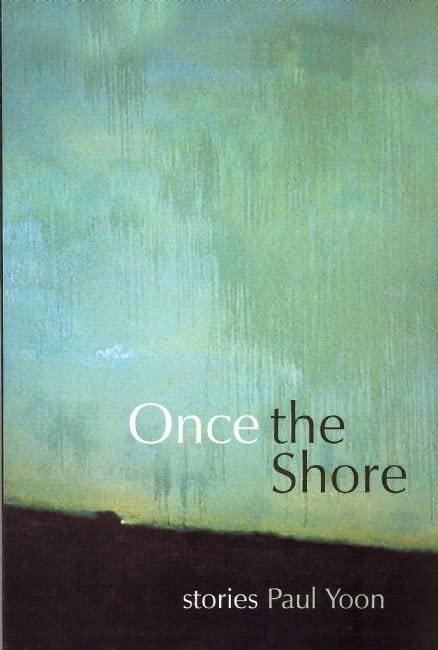 |
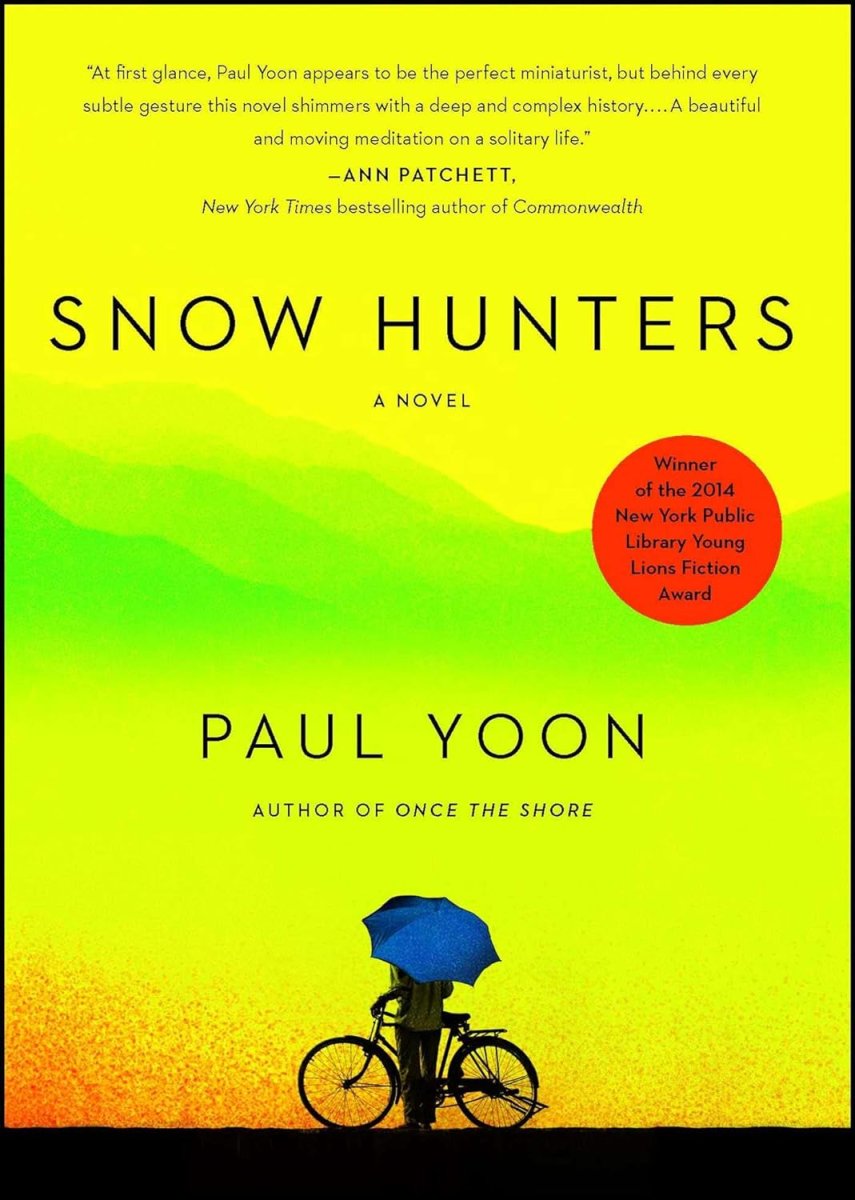 |
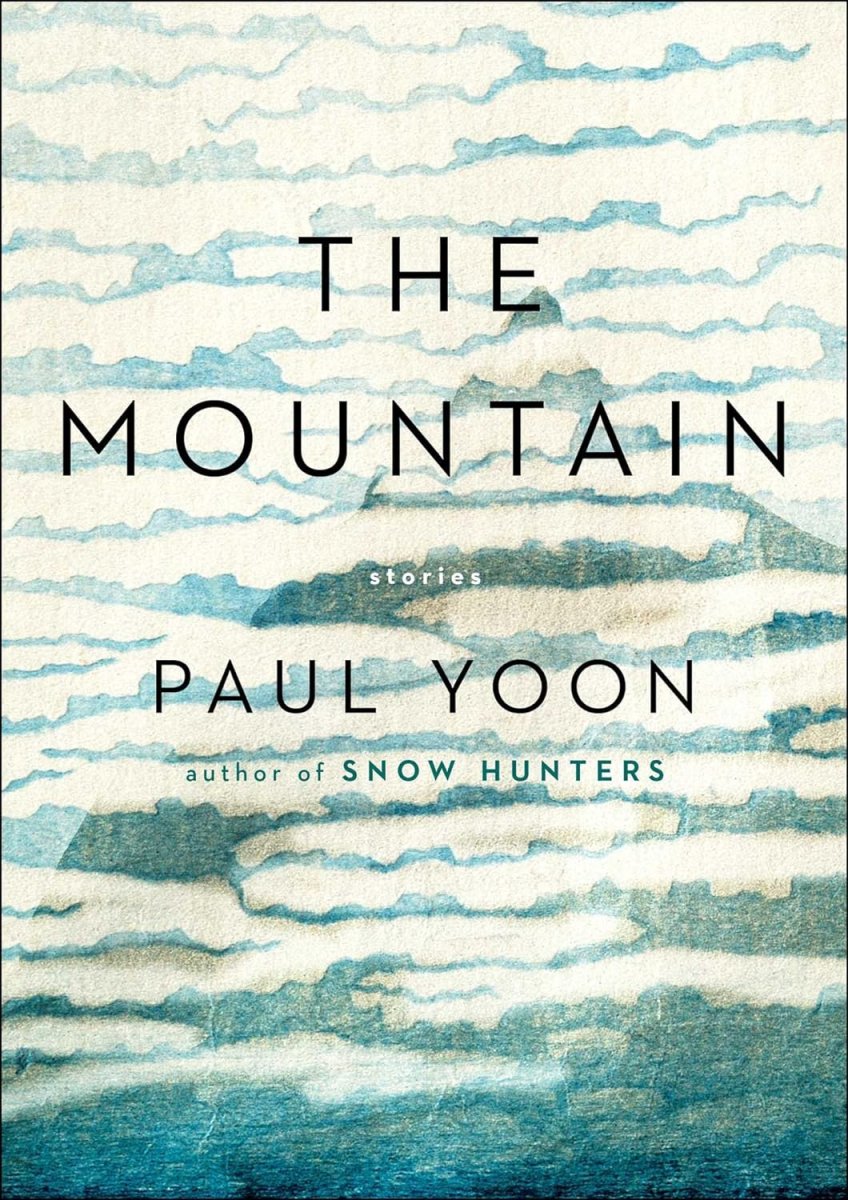 |
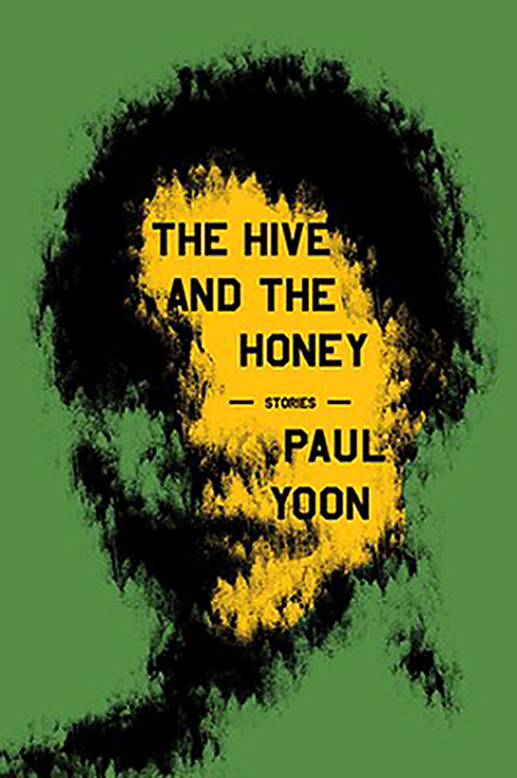 |
Editor's note: This article first appeared in the winter 2024 issue of The Exeter Bulletin.
